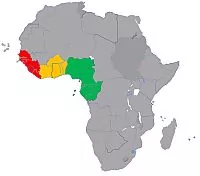On 23 August, the US agreed to repatriate to Nigeria USD23 million that had been recovered as proceeds of corruption by former Head of State, Sani Abacha. This would bring the amount paid to the country by the US since 2020 to approximately USD335 million. The conditions for repatriation are strict to ensure that the returned funds go to where they're needed most.
SIGNIFICANCE – REPATRIATION WITH CONDITIONS
The US is setting the following conditions for repatriation:
- The money is solely used to fund three specific infrastructure projects, namely the Second Niger Bridge, Lagos-Ibadan Expressway and Abuja-Kano Road.
- Nigeria's sovereign wealth fund manages the projects.
- Independent auditors and nonprofits are engaged to evaluate expenditure and the performance of contractors.
- Authorities cannot use any part of the payment for legal or consultancy fees – a potential opportunity for corruption.
This agreement typifies terms that Western countries are improvising to ensure repatriated funds are spent prudently for the benefit of ordinary constituents and not just the political elite. They are learning from mistakes of the past. For instance, in 2003, a payment by Switzerland simply went into Nigeria's national budget without extra measures to improve accountability.
Now, countries are tightening processes to ensure stolen assets are not diverted again when they are returned. In March, the UK, Switzerland and Jersey announced they would return GBP3 million to Kenya under a special framework. In this case, parties jointly chose two nonprofits active in Kenya to receive the payment and independently spend it on local healthcare. The US and Switzerland have also made separate arrangements to send proceeds of corruption to charities in Equatorial Guinea.
The repatriation process has often progressed slowly, in part due to gaps in legislation in both the receiving and returning countries. For example, the UK's Proceeds of Crime Act 2002 does not include modalities for returning proceeds to their countries of origin, and when the country improvised an agreement to repatriate GBP4.2 million to Nigeria for the first time last year, Nigeria had not enacted its own Proceeds of Crime Act 2022. Meanwhile, pending legislation in France has hampered the return of assets recovered in a corruption case against Equatorial Guinea's Vice President Nguema Obiang Jr.
OUTLOOK – TIGHTENING LOOPHOLES
More countries in Africa are strengthening the domestic legal framework for curbing corruption – as in Liberia where new laws have been enacted since June to reform the anti-corruption agency and establish rules for managing proceeds of crime. See: More clout for Liberia's anti-graft body but president is final arbiter. However, we continue to find gaps in the consistent enforcement of existing regulations as officeholders exert political influence over systems (See also: Sierra Leone president suspends auditor-general who exposed corruption). Mechanisms for accountability remain prone to political capture and may continue to deter the return of assets recovered from corruption.
The content of this article is intended to provide a general guide to the subject matter. Specialist advice should be sought about your specific circumstances.

